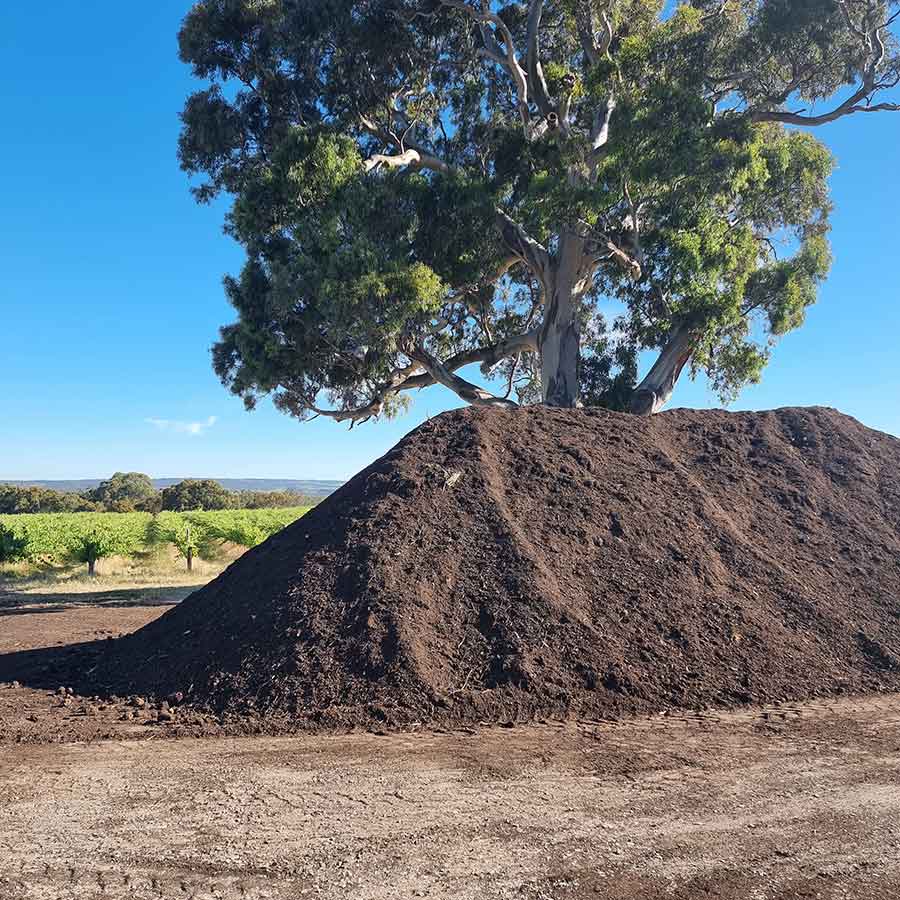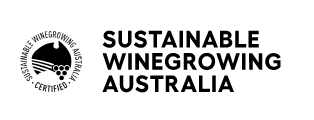Production

Orbis Wines in McLaren Vale
The off-grid winery located in the vineyard was constructed from the existing sheds on the property, and extended using native hardwood timber grown on site. Temperature and humidity controlled using solar power and evaporation of rainwater, our winery is a perfect environment for making our wines.
Winemaker Verity Cowley
Our Managing Director and Head Winemaker Verity Cowley has over 15 years of dedicated experience in winemaking and viticulture. With an extensive background in sustainability and a passion for innovation in minimal intervention winemaking, Verity has been instrumental in the rising popularity of preservative-free wines in Australia.
Verity is focused on developing our holistic approach to sustainability, blending tradition with innovation to craft premium wines that respect the landscape and enhance fruit purity.
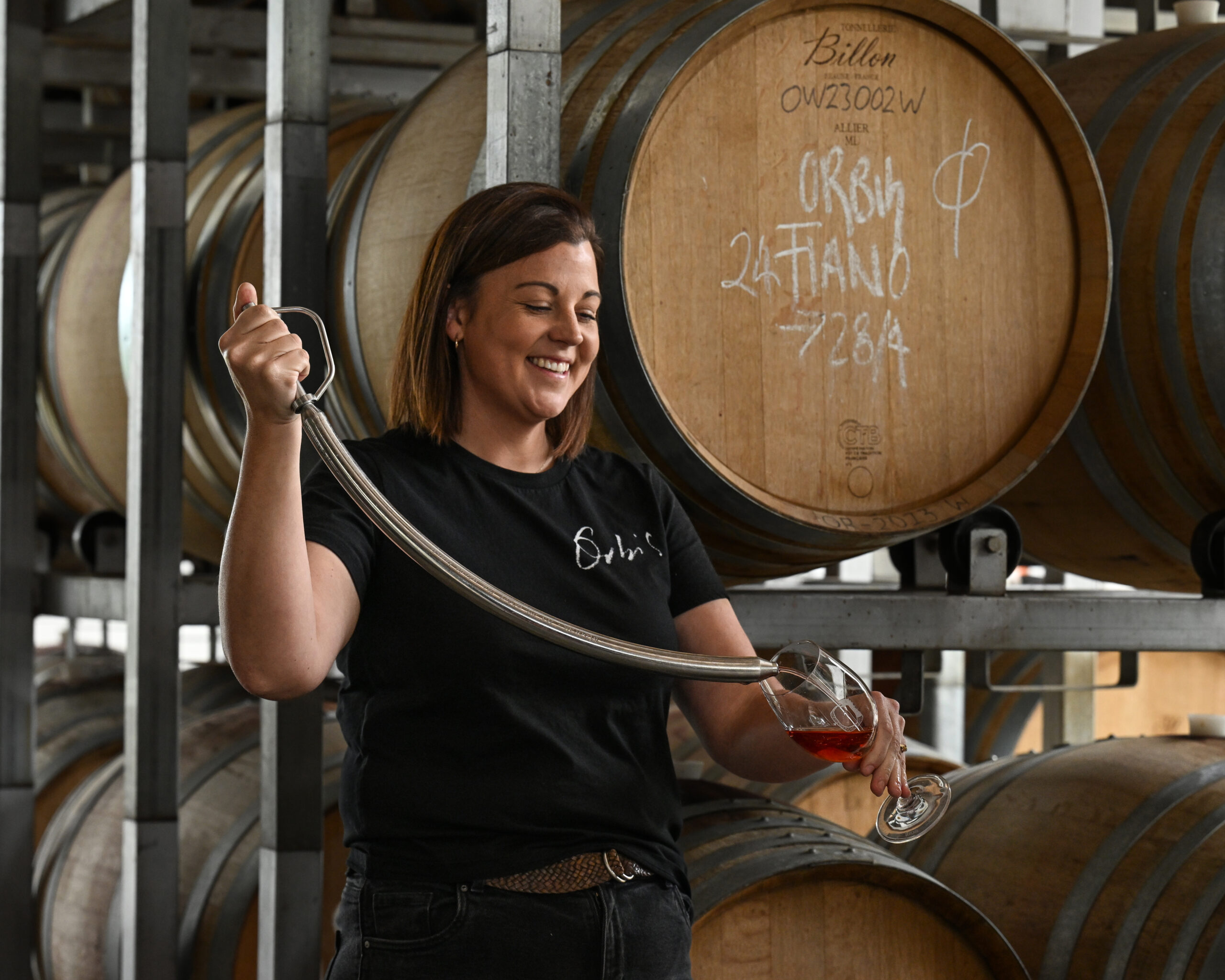
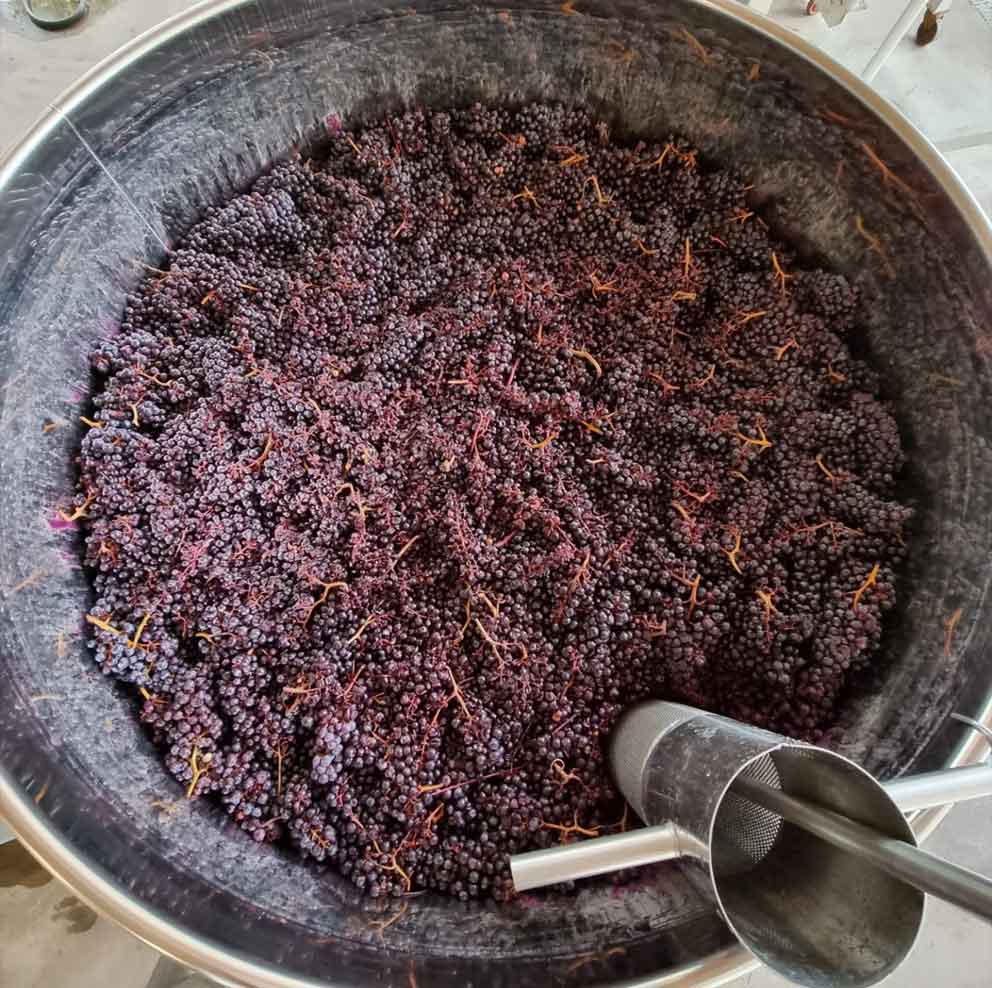
Winemaking
Orbis wines express their unique terroir while remaining vibrant and delicious.
Orbis wines are made with low, to no sulphur additions, no added fining agents and are unfiltered, gluten free and vegan.
Producing wines here on the estate means the mere 200m journey to the winery eliminates the need to make in-field sulphur additions, keeps the fruit cool and in pristine condition and minimises transport related carbon emissions.
We use indigenous yeasts fermentation to create wines that truly reflect of our unique site.
Handpicking fruit enables quality control in the vineyard by removing any undesirable bunches, and treats our fruit really gently, reducing any unnecessary oxidation. It also protects our older vines from mechanical damage, and protects the native lizards, insects and other species that call our vineyard home.
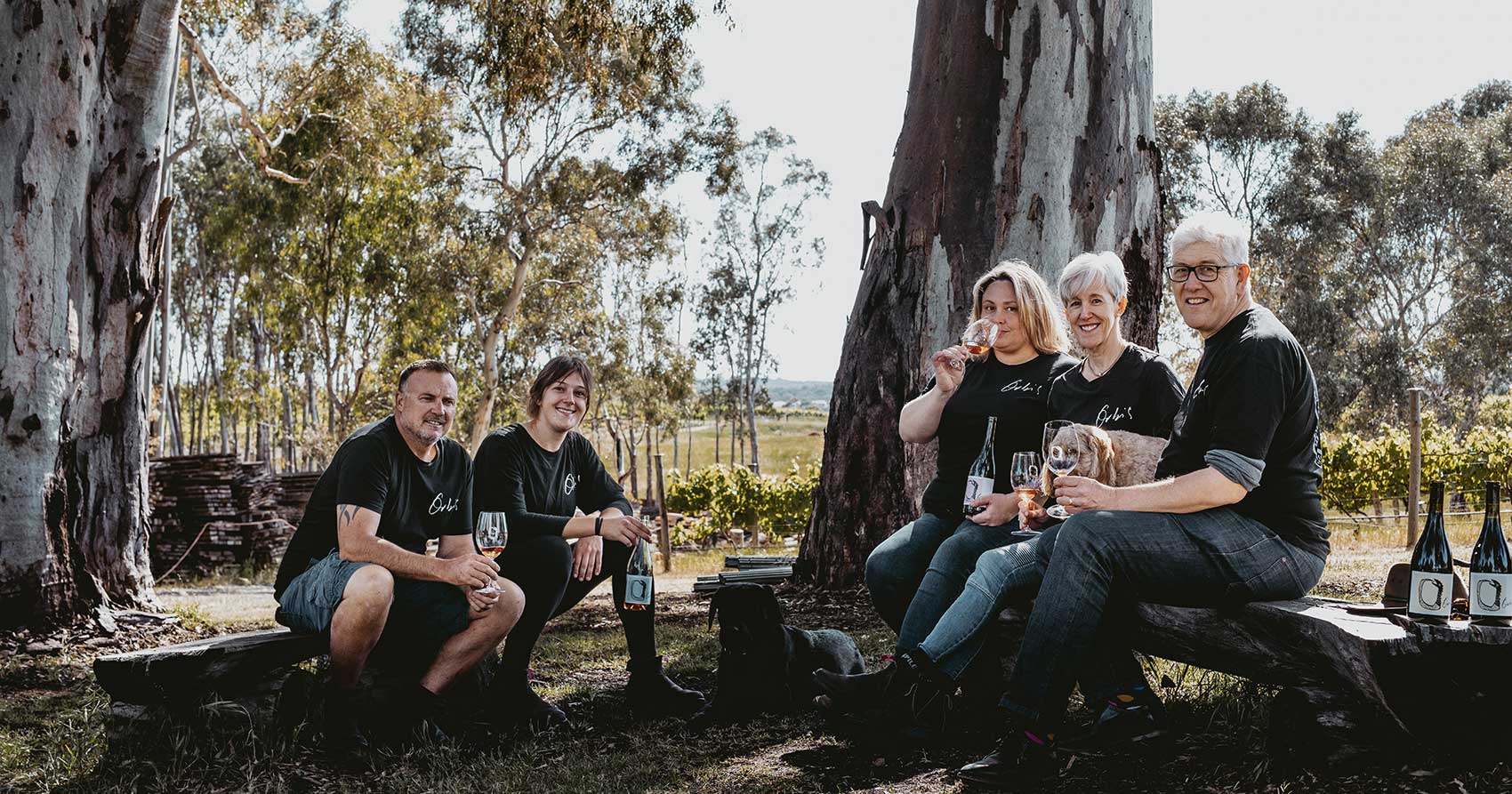
Our vineyard

Orbis Wines in McLaren Vale
Overlooking the valley floor at around 150m above sea level, and just 10km from the waters of St Vincent Gulf, the Orbis Vineyard is one of the coolest and highest in the McLaren Vale Wine region.
We are committed to preserving the biodiversity of native flora and fauna, protecting our precious water sources and building long term soil fertility on our special site.
The Orbis Vineyard
The Orbis Vineyard spans 32 hectares, with a native woodlot and remnant vegetation supporting a variety of Eucalypts and other species. We are lucky to share this land with a diverse range of native animals and birdlife, as well as insects and reptiles, whose habitat we prioritise protecting.
The vines grown here at Orbis include varieties that originate from the warmer, drier wine regions of the Southern Rhone, Southern Italy and Spain.
Our commitment to new varieties is matched by our passion for preserving McLaren Vale history, by regenerating the productivity and health of our old vine Shiraz. Planted in the 60’s and 70’s, these old vines were established by Rycroft and the Leask and Hardy families.
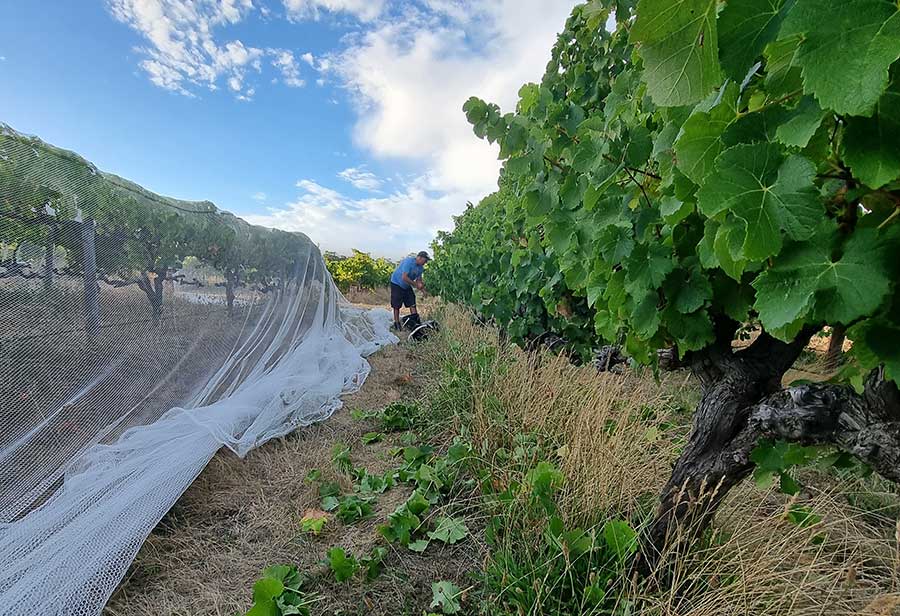
We were honoured to be named as one of 2021 Top 50 Vineyards of Australia.
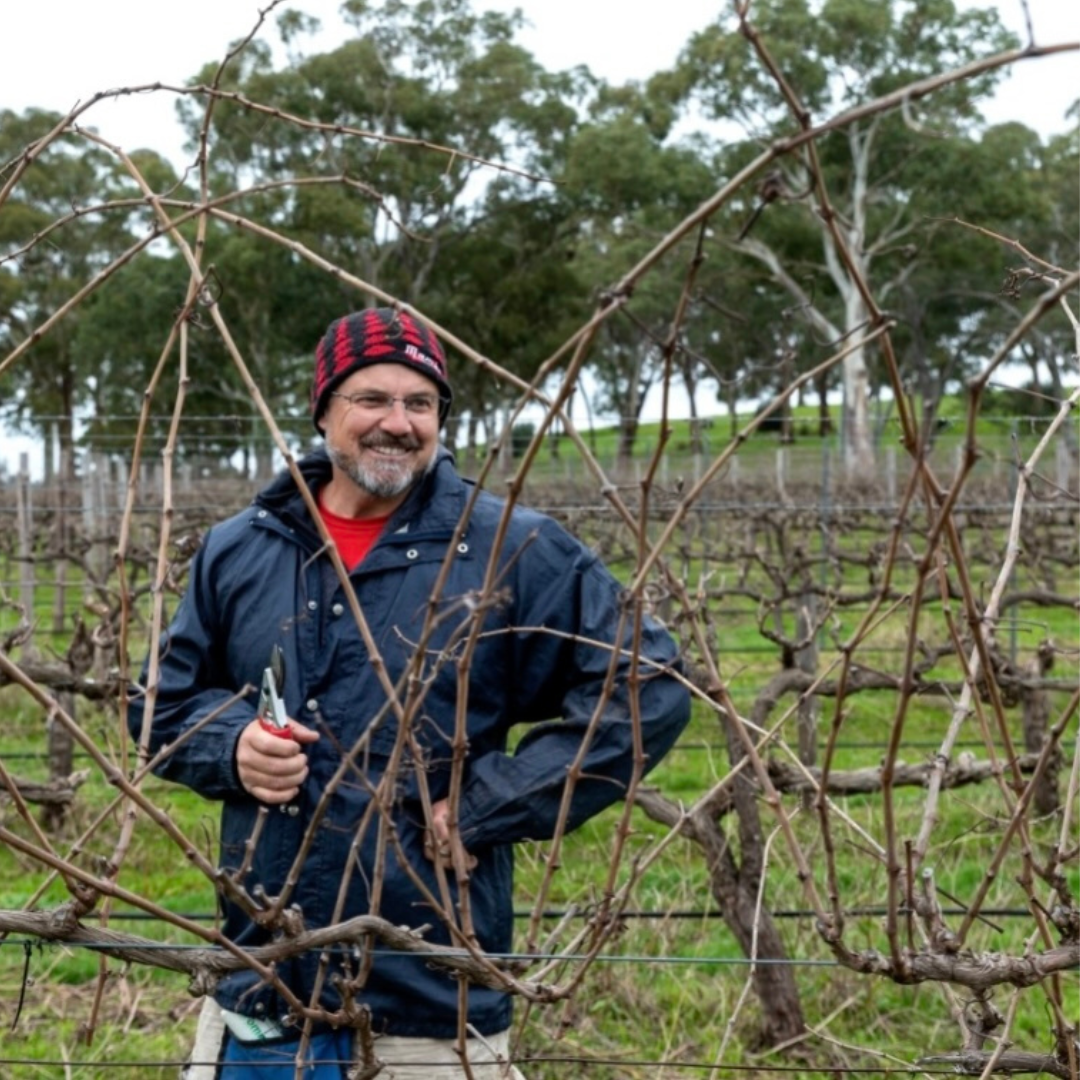
Viticulture
Sustainability has always been at the heart of Orbis Wines. We have always employed regenerative, circular farming practices to promote the natural fertility and health of our soils and vines.
We have partnered with GT Viticulture, industry experts in the management of Organic and Biodynamic vineyards.
Orbis has now entered the “in conversion” phase, with a plan to reach full Organic and Biodynamic certification over the next three years.
This drive is all about strengthening our soil and ecosystems to create wines that reflect the Orbis commitment to environmental health and sustainability.
Our Vineyard is certified under the Sustainable Wine Australia Program, which requires us to demonstrate continual improvement of our sustainability though economic, environmental and social aspects of our business.
Sheep grazing in our vineyard
One of our many innovations towards the achievement of our sustainability goals has been the introduction of sheep grazing into our vineyard. What began as grazing through autumn and winter has evolved to having the majority of the vineyard set up with high 1.35m cordons. This enables cellular grazing of our Babydoll sheep year-round, eliminates the need for undervine herbicides or mechanical weed management.
Babydoll lambing in Spring is one of our favourite times of the year.
A permanent green cover throughout the vineyard supports biodiversity, provides habitat for insects and reptiles, increases soil carbon and microbial life in our soils.
We also apply composted mulch to the vineyard, which we make utilising grape waste and forestry by-product. The mulch is broken down with the help of our happy chickens that turn it and add nutrients.
Sustainability

Sustainability
Sustainability is what we are all about here at Orbis. Never before in human history has the pursuit of a sustainable approach been more important. We do recognise that before we can be sustainable, we must regenerate the health of the ecosystem that supports our vineyard.
McLaren Vale sustainability and organic viticulture
We are grateful to others in the McLaren Vale community that have established it as a leader in the pursuit of sustainability and organic viticulture and hope that our successes and lessons learned will benefit them and others over time.
Our philosophy for sustainability is based on the 17 United Nations Sustainable Development Goals that goes beyond the common economic, social and environmental definition.
Orbis is working towards the goal of Carbon Net Zero by reducing our emissions and those related to our purchases, and increasing our carbon sequestration on site. We are proud to be providing meaningful work for up and coming winemakers and viticulturalists.
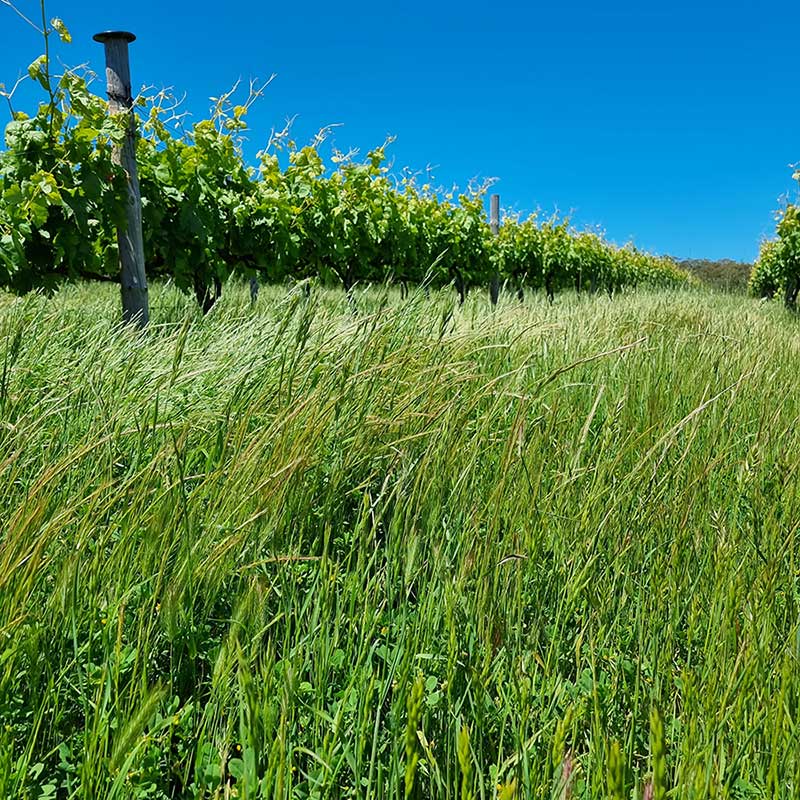
Sustainability efforts at Orbis
A native woodlot on the property provides a wood source for vineyard end posts and winery expansions.
We seek to avoid or minimise the use of resources. We use materials that minimise whole of life impact by being low embodied carbon, long lived or multiple use and are biodegradable or recyclable.
Our labels are printed on bagasse, a product made from sugar cane waste, we use Australian made glass bottles, and our wines are sealed under cork without the unnecessary foil cap.
